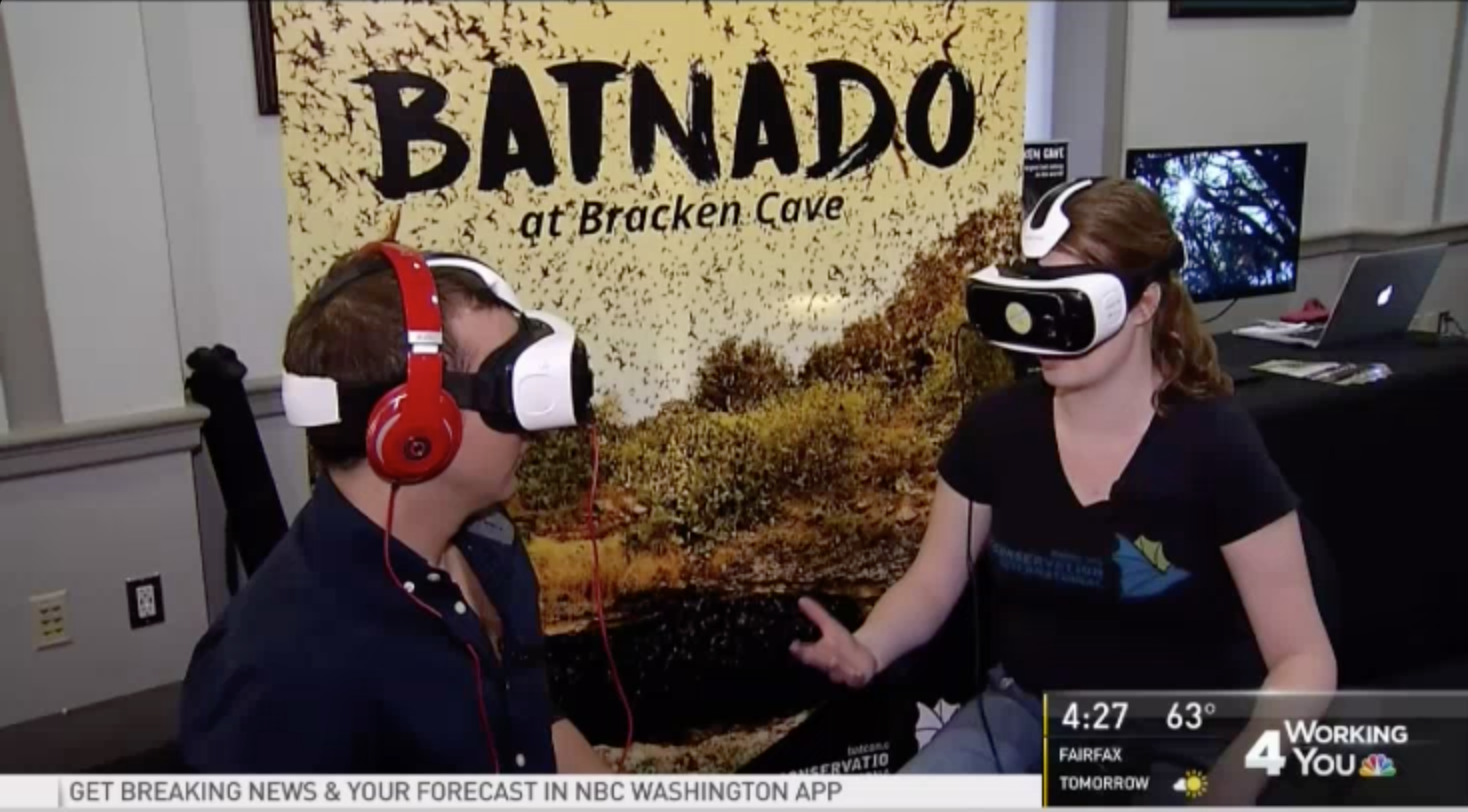Media
Being a bat advocate I often find myself chatting about them in the media!

TODAY SHOW October 30, 2016
Tens of thousands of people from across the country gather to Austin and San Antonio, Texas for a truly amazing sight: Millions of bats taking flight each night. Called by some, “bat-nado,” it has become Austin’s top attractions in the summer and fall months. NBC’s Janet Shamlian reports for Sunday TODAY on this batty new trend in Texas tourism.

Capitol Hill is getting batty. Tommy McFly took a trip to the Hill, where advocates are trying to get more protection for the animals that may seem scary -- but are actually helpful to the environment. (Published Wednesday, Oct. 25, 2017).
Visit NBC4 - https://www.nbcwashington.com/entertainment/the-scene/Bat-Week-Kicks-Off-On-Capitol-Hill--453170753.html


National Geographic’s Animal Jam teams up with Micaela Jemison from Bat Conservation International to show just how cool bats really are!

Do you enjoy tequila? Then you need to raise your glass to the pollinating bats that helped to make it! Here at Smithsonian Science we are celebrating Pollinator Week by exploring the world of pollinating bats.

Victoria has 21 species of insect-eating microbat and unfortunately some of these are threatened. Scientists from the Department of Sustainability and Environment are conducting research on several of these species to try to gain a greater understanding about them.






TUMBLE PODCAST
Why do bats hang upside down? That's what fifth graders living in the Bat Capital of the World - Austin, Texas - want to know. We visit Micaela Jemison at the world headquarters of Bat Conservation International to figure out why bats have such weird sleep habits. Plus, why would bats walk on treadmills? They're mysterious creatures. This is the first in a series of shows featuring kids' questions. We want to hear what you think!
NPR
You can't have tequila without agave, the spiky desert plant used as its base. And it's hard to have agave without bats — because a few species of these winged creatures are the plant's primary pollinators. Agave co-evolved with bats over thousands of years. As a result, it's one of the very few plants that pollinates at night.

ABC Central Victoria
George Junior is a micro bat who has been hand fed mosquitos. He can eat about half his weight in insects a night.That's about ten grams of mosquitos and his keeper says it takes her over an hour to fill him up with the tiny morsels.
Micaela Jemison is a Bat Ecologist with the Arthur Rylah Institute of Environmental Research and she's in charge of ferrying George around for Science Week.
The death of hundreds of dehydrated flying foxes speaks to a much larger issue
In The Name Of Ugly: THE FACES ONLY MOTHERS COULD LOVE NEED SOME LOVING FROM YOU



















This Halloween, meet a fishing bat that hunts at sea